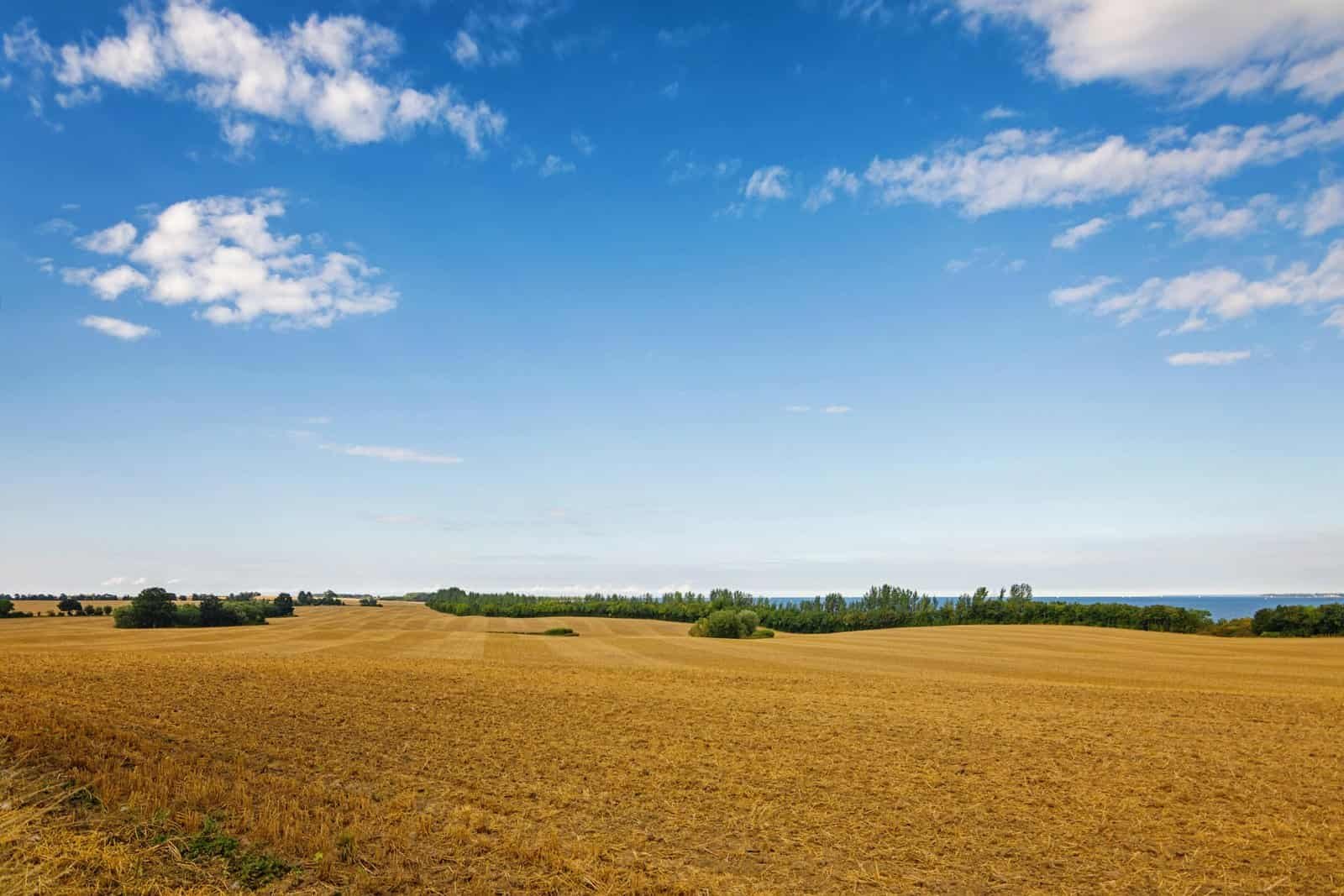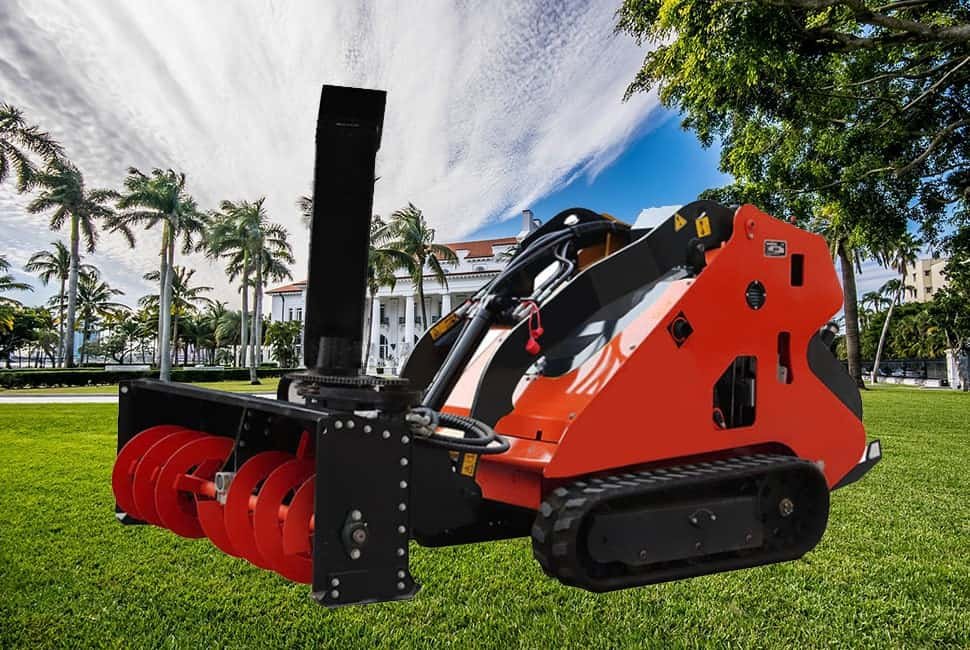When selecting a tractor for your farm, you face numerous challenges, including soil type, crop requirements, and budget constraints. Choosing the right tractor is crucial for enhancing productivity and reducing long-term costs. A well-chosen tractor not only makes farming tasks easier but also contributes to better crop yields and overall farm efficiency. This guide aims to help you navigate the complexities of tractor selection by considering various essential factors that can impact your farming operations.
What Factors Should You Consider When Choosing One?
The key to selecting the right tractor lies in understanding your farm’s specific needs, including the type of crops you grow, the size of your land, and your budget. By assessing these aspects, you can ensure that your tractor meets your agricultural demands effectively and efficiently. Additionally, you should think about the type of terrain on your farm, as different tractors excel in different conditions. This comprehensive evaluation will guide you toward a decision that aligns with both your current needs and future goals.
Understanding Your Agricultural Needs
Begin by evaluating the types of crops you plan to cultivate and the agricultural tasks you need the tractor to perform. For instance, will you primarily be plowing, planting, or harvesting? Each task may require different specifications in terms of power and attachments. Consider how frequently you’ll perform each task and the scale of these operations. This will give you a clearer picture of the capabilities you need in a tractor, ensuring it is equipped to handle the demands of your specific agricultural practices.
Soil Conditions and Terrain
Consider the soil type and terrain of your farm. Heavy, clay-rich soils may require a more powerful one with robust tires, while sandy or loamy soils might allow for a lighter model. The tractor’s ability to maneuver through various terrains is crucial for efficient operation. Additionally, assess the slopes and obstacles on your land, as these factors can significantly impact your choice of tractor. A machine designed for rough terrain will enhance your operational efficiency and reduce the risk of getting stuck or causing soil compaction.
Budget Constraints
Your budget will significantly influence your choice. While high-end models may offer advanced features, it’s essential to find a balance between cost and functionality. Assess your long-term investment and consider the potential return on investment (ROI) based on improved efficiency and reduced labor costs. Furthermore, don’t forget to factor in additional costs such as maintenance, insurance, and fuel consumption. By preparing a comprehensive budget, you can make a more informed decision that aligns with your financial capabilities and farming goals.
How to Know What to Buy?
Knowing what tractor to buy involves thorough research and a clear understanding of your needs. Consider the following aspects to guide your decision:
Brand and Model Reputation
Research different brands and models to identify those known for reliability and performance. Models equipped with a Kubota engine are often praised for their durability and efficiency, making them a popular choice among farmers. Additionally, look for reviews and testimonials from other users to gauge their experiences. A well-regarded brand can offer peace of mind, knowing that you are investing in a product backed by years of engineering and agricultural expertise.
Specifications and Features
Evaluate the specifications of various machines, focusing on horsepower, fuel type, and engine size. Features such as a hydraulic system can enhance the tractor’s versatility, allowing you to operate various attachments more effectively. Consider how these features align with your farming practices. For instance, if you often switch between tasks, a tractor with quick-connect attachments can save you valuable time during busy seasons. Understanding these specifications will help you choose a tractor that meets your operational needs without compromise.
Consultation and Demonstrations
Consult with experienced farmers or agricultural advisors to gain insights into what works best for your specific circumstances. If possible, arrange for demonstrations to experience the tractor’s performance firsthand. This step can provide invaluable insights that written specifications cannot convey. During these demonstrations, pay attention to the tractor’s ease of use, handling, and comfort, as these factors can significantly affect your day-to-day operations on the farm.
What Size Do You Need for 5 Acres?
For a 5-acre farm, a small tractor is typically the most suitable option, providing flexibility and efficiency.
Recommended Horsepower
One with 25-35 horsepower is generally adequate for this size of land. This power range allows you to perform essential tasks such as plowing, planting, and maintaining your crops without overburdening the machine. Moreover, smaller tractors are often easier to operate and navigate in confined spaces, making them ideal for small farms where precision is key. This added maneuverability can improve your overall productivity by reducing time spent on tasks.
Benefits of Small Tractors
Some small are easier to maneuver and can navigate tighter spaces on smaller farms. They are also generally more affordable and consume less fuel, making them a cost-effective choice for small-scale operations. Additionally, many small tractors offer a range of attachments that can expand their functionality, allowing you to perform various tasks without needing multiple machines. This versatility can save you money and storage space, making small tractors a smart choice for efficient farm management.
Additional Considerations
When choosing a small, consider models equipped with a hydraulic system. This feature will enhance your tractor’s capability, allowing you to use various attachments like loaders and tillers, thus maximizing its functionality. Hydraulic systems can significantly reduce manual labor, making it easier to handle heavy loads and perform complex tasks. Additionally, inquire about warranty options and after-sales support, as these can provide added value and peace of mind regarding your investment.
What Size is Best for 10 Acres?
For a 10-acre farm, a medium-sized tractor is often the best choice, capable of handling larger-scale operations while remaining economical.
Recommended Horsepower
A tractor with 35-50 horsepower is suitable for managing this acreage efficiently. This power range provides the necessary strength for various tasks without excessive fuel consumption. Medium-sized tractors can also accommodate a wider range of attachments, giving you the flexibility to tackle different jobs as your farming needs evolve. This adaptability makes them an ideal long-term investment for farmers looking to expand or diversify their operations.
Versatility in Operations
Medium-sized tractors can perform a wider range of functions, including tilling, planting, and even light hauling. Their versatility makes them invaluable on farms of this size, allowing you to adapt to various tasks throughout the growing season. Furthermore, these tractors often come with features that enhance operator comfort, such as ergonomic seating and user-friendly controls. This focus on comfort can lead to increased productivity during long working hours.
Features to Look For
Looking for that offer multiple attachment options, such as seeders and plows. Models featuring hydraulic systems will enhance your operational efficiency, enabling you to switch attachments easily and complete tasks more quickly. Additionally, consider the tractor’s turning radius, weight, and overall design, as these factors can impact maneuverability in different farming situations. A well-designed tractor will facilitate a smoother workflow on your farm, reducing the time spent on each task.
What is the Best All-Around Tractor for 20 Acres?
When managing a 20-acre farm, you’ll need an all-around tractor that can handle diverse agricultural tasks effectively.
Recommended Horsepower
For a 20-acre farm, tractors in the 50-70 horsepower range are generally recommended. This power level strikes a balance between efficiency and capability, allowing you to handle heavier tasks without sacrificing performance. This category of tractor is particularly beneficial for farmers who require reliability across various tasks, from tilling to transportation. The right horsepower ensures that you can meet the demands of your farm without running into limitations.
Multi-Functionality
All-around machines should come with various features to support different agricultural activities, such as hay production, tilling, and livestock management. The ability to utilize multiple attachments increases the tractor’s utility across various farming operations. As your farm evolves, having a versatile one allows you to adapt to new challenges and opportunities without needing to invest in additional machinery. This adaptability can be crucial in maintaining a competitive edge in the agricultural market.
Reliability of Engine
Opt for them equipped with a reliable engine, such as a Kubota engine, which is known for its longevity and performance. This choice ensures that your investment remains valuable over the years. Moreover, a dependable engine translates to fewer breakdowns and repairs, saving you time and money in the long run. Always review the engine specifications and maintenance requirements to ensure you select a model that aligns with your operational needs.

How Many Horsepower Do You Need?
Understanding how much horsepower you need is critical for effective tractor operation on your farm.
General Guidelines
As a general rule, for every 10 acres of farmland, you should consider a tractor with 20-30 horsepower. However, this guideline can vary based on the types of crops you grow and the specific tasks you perform. For example, if you are primarily engaged in heavy-duty tasks, such as hauling and plowing, you may want to opt for a tractor with higher horsepower to ensure efficient performance.
Assessing Your Workload
Evaluate the typical workload you expect on your farm. If you plan to undertake heavier tasks, such as moving large bales of hay or operating heavy machinery, you may need one with higher horsepower. Conversely, if your operations are lighter, a smaller tractor might suffice. Consider future expansion and the possibility of diversifying your farming activities; investing in a more powerful tractor now could save you from needing to upgrade later.
Power vs. Efficiency
While higher horsepower can improve performance, it may also lead to increased fuel consumption. Therefore, consider the balance between power and efficiency to avoid unnecessary costs. Choose a tractor that provides sufficient power without excessive fuel use, thus ensuring sustainable operations on your farm. Always consider the long-term operating costs when making your decision to ensure that your investment pays off in the long run.
Does Horsepower Matter?
Yes, horsepower is a vital factor in evaluating its performance, directly affecting its efficiency and capability.
Importance of Adequate Horsepower
Having sufficient horsepower ensures that your tractor can perform various tasks without strain. Inadequate power may lead to inefficient operations, increased wear and tear, and a shorter lifespan for your machinery. Therefore, choosing a tractor that aligns with your operational requirements is essential for maintaining productivity. A tractor that struggles to handle tasks can lead to frustration and inefficiencies, ultimately impacting your bottom line.
Overpowering Risks
While it may seem advantageous to choose a higher horsepower tractor, it’s essential to avoid over-specifying your needs. An overly powerful tractor can lead to higher fuel costs and may not provide any additional benefits for smaller tasks. It’s essential to strike a balance, ensuring that you have enough power for your most demanding tasks without overspending on capabilities that you may rarely use.
Choosing the Right Match
Consider both your current and future farming needs. Selecting a tractor that matches your anticipated growth and operational demands will help you make a more informed decision. Keep in mind that future trends in agriculture may shift, and having a tractor that can adapt to new techniques or crops will prove beneficial in the long run. A well-matched tractor will not only enhance your efficiency but also contribute to the longevity of your investment.
What is the Average Horsepower of a Farm Tractor?
The average horsepower of a farm varies based on the type and model, typically ranging from 40 to 100 horsepower.
Types
Small ones often range from 20 to 50 horsepower, while larger, more specialized models can reach up to 100 horsepower or more. Understanding these variations helps you make a better-informed choice based on your farm’s specific requirements. It’s important to remember that the best tractor for you is not always the one with the most horsepower; it’s the one that best fits your operational needs and budget constraints.
Evaluating Your Options
When assessing options, consider the average horsepower that aligns with your intended use. This assessment ensures that you select a model that provides the necessary power while remaining efficient. Take the time to compare models from different manufacturers, looking for specifications that meet your operational needs. Consider seeking advice from agricultural experts or other farmers who can provide insights into their experiences with various models.
Importance of Research
Researching the market and comparing specifications from different manufacturers can help you identify tractors with the right horsepower for your needs. Don’t forget to evaluate reviews and case studies that highlight real-world performance and satisfaction among users. This thorough research will equip you with the knowledge needed to make an informed decision that supports your agricultural objectives.
Why Are Diesel Tractors Better?
Diesel tractors are often preferred in agricultural settings for several reasons, including efficiency and durability.
Fuel Efficiency
Diesel engines are known for their superior fuel efficiency, which translates into lower operating costs over time. This efficiency makes them ideal for extensive agricultural operations where fuel costs can accumulate rapidly. By choosing a diesel tractor, you can significantly reduce your fuel expenses, freeing up resources for other essential aspects of your farming operations.
Torque and Power
Diesel engines typically produce higher torque than gasoline engines, making them better suited for heavy-duty tasks. This attribute allows diesel tractors to perform well under demanding conditions, such as plowing or hauling heavy loads. The additional torque means that diesel tractors can handle larger implements and more challenging tasks, enhancing overall productivity and efficiency on your farm.
Longevity and Reliability
Diesel is generally more durable, with longer lifespans compared to their gasoline counterparts. Investing in a diesel model can provide a more reliable long-term solution for your farming needs. Additionally, many diesel tractors are designed with robust components that withstand the rigors of daily use, reducing the frequency of repairs and maintenance required.
Hydraulic System Benefits
It is equipped with hydraulic systems that enhance the overall performance of diesel engines, allowing for improved functionality and versatility in various agricultural tasks. This added capability allows you to operate a wide range of attachments and implements, making your tractor a multifunctional tool on the farm. The benefits of a hydraulic system extend beyond efficiency, often leading to better precision and control during operation.
Conclusion
Selecting the right tractor for your farm requires careful consideration of various factors, including the size of your land, the types of crops you grow, and your budget. By understanding your agricultural needs and researching different options, you can make an informed decision that enhances productivity and efficiency on your farm. As you explore your choices, prioritize models equipped with reliable engines, such as those featuring Kubota engines, and consider the benefits of a robust hydraulic system. With the right tractor, you’ll be well-equipped to tackle the challenges of modern farming and achieve long-term success. Remember, the right investment in a tractor can lead to improved yield, reduced labor costs, and a more sustainable farming operation for years to come.

